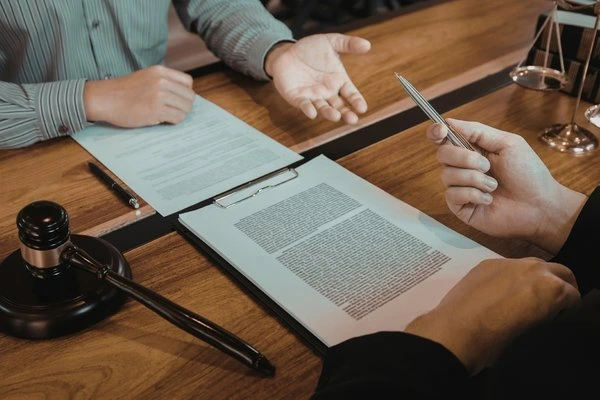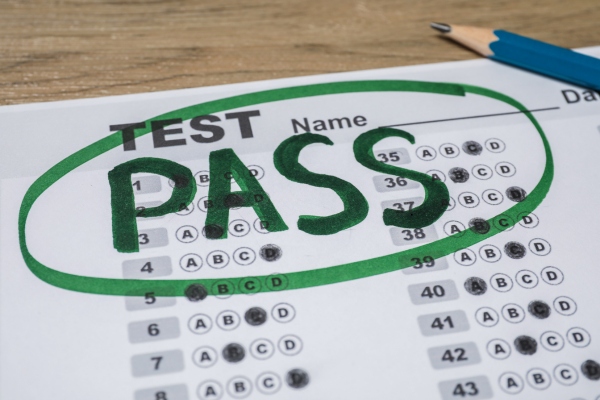Forensic Psychological Evaluation: What You Should Expect
A forensic evaluation is a specialized psychological assessment used in legal proceedings to evaluate mental health. This comprehensive process examines an individual’s psychological state in relation to specific legal matters. Courts rely on these evaluations to make informed decisions in criminal cases and family law. The assessment helps determine mental fitness for trial, parental capability, and workplace suitability. Understanding this process reduces anxiety and helps individuals prepare for what lies ahead. Forensic evaluations combine interviews, psychological testing, and detailed reports to provide accurate insights. These assessments play a crucial role in ensuring fair legal outcomes for all parties.
The evaluation process involves multiple stages including initial consultations, standardized testing, and comprehensive reporting. Legal professionals use these findings to guide decisions about trial competency and custody arrangements. Results can influence sentencing, treatment plans, and parental rights in various legal contexts. Knowing what to expect during a forensic evaluation empowers individuals facing legal challenges. This guide explains each step of the process and its impact on legal proceedings.
Key Takeaways
- Forensic evaluations assess mental health within legal contexts through interviews and psychological tests
- Results influence trial fitness, custody decisions, criminal responsibility, and workplace capability determinations
- The process includes referral, consultation, testing, analysis, and comprehensive report creation
- Evaluations provide objective, unbiased insights that help courts make fair and informed decisions

Understanding Forensic Psychological Evaluations
A forensic evaluation is an in-depth assessment designed to evaluate psychological state within legal contexts. It includes various tools like interviews, questionnaires, and psychological tests for comprehensive understanding. These assessments provide a complete picture of an individual’s mental health and functioning. In adult cases, the evaluation focuses on how mental health may impact legal involvement. This includes assessing ability to stand trial, parent a child, or safely perform job duties.
These evaluations are often necessary for understanding the link between mental health and behavior. This is especially true in high-stakes legal matters with significant consequences. The primary goal of a forensic evaluation is to clarify mental state connections to legal issues. This can include evaluating if someone can comprehend the charges they face in court. It also determines if they are mentally capable of committing a crime at the time. The assessment examines how mental health affects professional or family life as well. In some cases, this evaluation can influence sentencing, treatment plans, or custody decisions. The results provide critical information that guides legal outcomes and future planning.
Why Forensic Evaluations Are Essential
Checking Mental Fitness for Court Proceedings
In criminal cases, forensic evaluations help assess if a defendant is mentally fit for trial. This means determining if they understand the legal proceedings and charges against them. It also evaluates if they can participate effectively in their own defense. If a person is deemed unfit, they may receive treatment to restore competency. This process ensures fair legal proceedings for all individuals involved in court cases.
Examining Criminal Responsibility and Mental State
In some cases, a forensic evaluation determines if an individual was mentally ill when committing a crime. This is often known as the insanity defense in legal proceedings. The evaluation gives insight into whether mental illness played a role in the individual’s actions. It examines their ability to understand or control their behavior during the incident. This information helps courts make fair judgments about criminal responsibility and appropriate sentencing.
Assessing Parent Capability in Child Custody Cases
Forensic evaluations are also important in family law cases, particularly in child custody disputes. A psychological evaluation of parents or guardians helps determine their mental health status. It also assesses their emotional capacity to care for their children properly. This evaluation ensures that the child is placed in the most secure environment possible. The goal is to protect children’s wellbeing and provide them with nurturing care.
Evaluating Employee Mental Fitness for Job Duties
In high-risk occupations, a forensic evaluation helps assess an employee’s ability to perform duties safely. This also applies when someone is facing workplace-related mental health issues that affect performance. Whether it is a fitness-for-duty evaluation or a workplace injury assessment, these are essential. These evaluations ensure that mental health concerns do not compromise job performance or safety. They also protect the well-being of others in the workplace environment.

What Takes Place During a Forensic Evaluation?
Getting Started with Referrals and First Meetings
The process typically begins with a referral from a legal professional for evaluation purposes. An attorney or judge requests the assessment for a specific legal matter or case. The initial consultation involves an interview where the psychologist explains the evaluation process clearly. They obtain your consent and discuss the legal context of the assessment thoroughly. This session serves as a foundation for the entire evaluation moving forward. Your personal background, legal situation, and mental health history will be explored in detail. Qualified professionals conducting these evaluations are often asked about past psychological evaluations and family history.
They discuss any significant events that may have impacted their mental health over time. The evaluator will also review any relevant legal documents or medical records provided for context. These records offer additional information and allow for a more comprehensive understanding of your situation. Establishing trust during this initial phase is key to a successful evaluation outcome. Open communication allows for a more accurate and meaningful evaluation of all factors. This approach addresses both legal and psychological aspects that impact the case directly.
Conducting Interviews and Using Assessment Tools
Once the background information is gathered, interviews are conducted with standardized questionnaires potentially used. These tools help assess your thoughts, emotions, and behaviors in various situations accurately. Common questions focus on symptoms like depression, anxiety, or other mental health concerns present. The evaluator might ask about your daily functioning, past trauma, and emotional reactions experienced. They also inquire about coping skills and how you handle stressful situations effectively. These questions help identify how your mental state could relate to the legal matter.
For instance, a criminal defendant may be asked about their behavior at the time. Meanwhile, a parent in a custody case may be asked about their child relationship. In addition to verbal interviews, you may complete written assessments measuring cognitive functioning carefully. These measure personality traits and risk factors that could affect legal outcomes significantly. The combination of interviews and questionnaires creates a fuller picture of your mental health. This helps the evaluator form an informed, objective opinion contributing to legal proceedings appropriately.
Administering Psychological Tests
In addition to interviews, psychological tests are often used during forensic evaluations for accuracy. These assessments measure various aspects of mental health and cognitive abilities comprehensively. They evaluate memory, attention, reasoning, and emotional responses in structured testing environments. Tests such as the Minnesota Multiphasic Personality Inventory are commonly used in assessments. The Beck Depression Inventory is also utilized to measure symptoms of depression and anxiety. These standardized tests give objective data that can be important in forming complete profiles. They provide measurable results that support clinical observations and interview findings effectively. Neuropsychological evaluations may also be incorporated when cognitive function assessment is necessary for legal proceedings.
Reviewing Data and Creating Reports
Once the tests and interviews are completed, the evaluator analyzes the data collected thoroughly. This analysis includes a thorough review of the interviews, questionnaires, and psychological test results. The evaluator will then write a comprehensive report that outlines their findings clearly. They offer a professional opinion based on the individual’s psychological condition and assessment results.
The report will include recommendations for treatment if necessary for the individual’s wellbeing. It provides insight into how the person’s mental health affects their legal case outcomes. It might also include an opinion on whether the individual is fit for trial. The report may assess capability of making decisions or suitability for custody arrangements. This depends on the context of the evaluation and the legal questions posed. The final report serves as a crucial document in legal decision-making processes overall.

Understanding What Comes Next After the Forensic Evaluation
Once the assessment is complete, the results are shared with the referring legal party involved. In criminal cases, the evaluation report may influence the defendant’s ability to stand trial. It can also impact their defense strategy and how the case proceeds forward. In family law cases, the results could affect custody decisions and parental rights significantly. For workplace-related evaluations, the findings may determine if the employee is fit for duty. They also reveal if the individual requires additional support or accommodations at work.
Forensic evaluations provide information that can help shape legal decisions and guide case outcomes. However, it is important to note that the evaluation is just one part of the process. The final legal decision will be based on multiple factors beyond the assessment alone. But the insights provided by a forensic evaluation are often key in guiding those decisions. These findings serve as critical evidence that courts and legal teams rely on heavily. Professional psychological services play a vital role in delivering accurate and comprehensive evaluations for legal matters.
Advantages of Getting a Forensic Evaluation
A forensic evaluation can offer several important benefits for adults involved in legal matters. Here are a few key advantages that make these assessments valuable and necessary.
Fair and Precise Assessment
Forensic evaluations offer an impartial, thorough assessment of an individual’s mental health condition. This helps ensure that legal decisions are based on an accurate understanding of the person. This is important in legal contexts where mental state plays a significant role. Emotional health also determines outcomes in many cases that go through the courts. The objectivity of these evaluations removes bias and provides reliable information for all parties. This ensures fairness throughout the entire legal process from start to finish.
Bringing Clarity to Legal Matters
By identifying mental health conditions and cognitive function, forensic evaluations bring clarity to legal situations. They assess an individual’s ability to participate in legal proceedings effectively and appropriately. This applies in court settings or in family disputes that require psychological insight. It helps establish if a person is mentally fit to stand trial properly. The evaluation also determines if their mental health may influence their actions significantly. This information is vital for ensuring justice and appropriate treatment in all cases.
Customized Treatment Guidance
The evaluation not only helps with legal decisions but can also guide individuals properly. It directs them toward appropriate depression therapy, counseling, or other forms of treatment needed. This addresses underlying mental health concerns that may impact their lives and functioning. This way, the person will receive the right type of care tailored to needs. Treatment may relate to mental health, cognitive function, or emotional regulation improvement specifically. Proper guidance ensures better outcomes for individuals beyond just the legal proceedings alone.
Better Informed Legal Choices
Providing a clear picture of an individual’s psychological state helps legal professionals significantly. Forensic evaluations help them make informed decisions that consider both mental health factors. They also incorporate legal criteria into the decision-making process for balanced outcomes. The evaluation serves as a valuable tool in understanding psychological influences on behavior. It shows how the person’s mental health affects their actions or decision-making abilities. This comprehensive understanding leads to more just and appropriate legal resolutions overall.
Conclusion
Forensic evaluations serve as critical tools in the legal system for assessing mental health accurately. These comprehensive assessments provide courts with objective insights needed to make fair and informed decisions. Whether the case involves criminal proceedings, custody disputes, or workplace fitness evaluations, the process remains thorough. Understanding what happens during a forensic evaluation helps reduce anxiety and prepares you effectively. The combination of interviews, psychological testing, and detailed reporting ensures accurate results for all parties. These evaluations protect individual rights while supporting justice in complex legal situations nationwide.
If you are facing a legal matter that requires psychological assessment, seek professional help. Forensic evaluations offer valuable insights that can influence case outcomes and guide treatment recommendations. The process may seem overwhelming at first, but knowing what to expect makes it manageable. Remember that these assessments aim to provide clarity and fairness in legal proceedings. Take the first step by reaching out to qualified professionals for evaluation options. Your mental health and legal rights deserve proper attention and professional assessment always.
FAQs
What is the main purpose of a forensic evaluation?
A forensic evaluation assesses an individual’s mental health within a specific legal context accurately. It helps courts determine trial fitness, criminal responsibility, custody suitability, or workplace capability effectively.
How long does a forensic evaluation typically take?
The evaluation process can take several hours spread across multiple sessions for thoroughness. The timeline depends on case complexity and the specific assessments required by courts.
Who can request a forensic evaluation?
Attorneys, judges, or other legal professionals typically request forensic evaluations for specific legal matters. Individuals themselves cannot usually request these evaluations without court or attorney involvement first.
Will my forensic evaluation results remain confidential?
No, forensic evaluation results are shared with relevant legal parties involved in the case. These assessments are not confidential like traditional therapy sessions and become part of legal records.
Can a forensic evaluation affect my legal case outcome?
Yes, forensic evaluations can significantly influence legal decisions including trial competency and custody arrangements. However, the evaluation is just one factor courts consider when making final legal determinations.






























